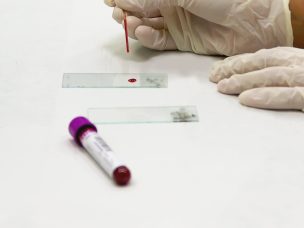Quitting alcohol can be a momentous and fulfilling accomplishment. So many who try to stop fail in the attempt. It would seem that having success would mean a lot of celebration and joy, but most often, this is not the case. Many people find that after quitting alcohol, they become depressed. And although they may be surprised by the depression, it is a normal and completely understandable side effect after long-term alcohol use.
Many people anticipate a great sobriety life, but the reality may be far less exciting – at least in the beginning. This could be a reason for their depression. At the same time, some sources think the depression may have been present all along and be a sign of underlying, maybe undiagnosed, mental health problems. In any case, post-alcohol depression is a reality.
Related: The Reasons Behind Alcohol Consumption
How to Recognize Depression
Depression may be challenging to identify because many signs and symptoms don’t look like what we might expect. Depression is more than the layperson’s idea of prolonged sadness or despair.
The following signs and symptoms of depression may range from mild to severe, but most will fall somewhere in between.
- Fatigue; Lack of energy
- Weight loss or weight gain
- Sadness, Low mood, or hopelessness
- Persistent anxiety
- Loneliness
- No desire or pleasure in participating in regular activities
- Feeling unsociable
- Lack of sleep
- Restlessness or Irritability
- Unwarranted feelings of guilt or shame
- Slowed physical movement and mental functions
- Lack of focus and difficulty with decisions
- Loss of appetite
- Unexplained aches, pains, digestive problems, etc.
- Suicidal thoughts or attempts
If they are feeling any of these symptoms, especially if the symptoms are disrupting the flow of their lives, they should seek help.
Why Quitting Alcohol Can Lead to Depression
So, why does quitting alcohol lead to depression? Here are a few possible reasons:
- Relationship Difficulties: New sobriety may mean mending relationships with significant people in their lives. There may be overwhelming emotions, like anger, resentment, rejection, etc. Also, their personalities in sobriety may be very different from their drinking selves, so existing relationships may suffer.
- Adjusting to Genuine Emotion: Akin to the above reason for depression, a newly sober person may have become used to the numbing effect of constant alcohol consumption. They will have to adjust to feeling all their emotions, which can be disconcerting.
- No More Self-Medicating: Drinking dulls emotions and can often feel like an escape or coping mechanism when dealing with tough circumstances, big emotions, or mental illness. But sobriety means they no longer have this method available, making depression a natural result.
- Loneliness and Boredom: They may feel lonely due to changes in relationships. Also, drinking takes up time and space in their lives, so sobriety can leave an empty space and boredom.
- Facing the Issues: While drinking, many people can effectively ignore the big issues in their lives – relational, financial, career, etc. Suddenly, sobriety means they have to deal with these things with a clear mind. This can be depressing for anyone.
- Brain Chemistry: This is a neurological reason for the onset of depression. Alcohol dependence has a tangible impact on the brain’s pathways and causes an excessive amount of dopamine to be released. When this stimulus is no longer present, brain chemistry must adjust, and this can lead to depression.
Related: Higher Alcohol Consumption Tied to Muscle Loss
Risk Factors of Depression
Whether or not depression results from alcohol use disorder, there are risks associated with it. Considering the signs and symptoms of depression, it is enough of a risk factor just to be depressed for any length of time. This is an enormously difficult way for a person to exist in life.
The burden of these negative feelings and experiencing life through the lens of depression can lead to suicide. Those quitting alcohol who have significantly reduced their social or familial circles may be especially at risk of suicide. Meaningful connections with their community and family greatly reduce the chances of suicide. Professional intervention is vital for people who don’t have this support.
Risk of Relapse
Of course, one of the biggest risks of depression due to alcohol use disorder is relapse. Self-medicating with alcohol can occur even when the person doesn’t intend it. In great difficulty, people can revert to old habits and past comforts, regardless of the consequences. Having achieved abstinence, a person may anticipate a positive, joyful future. Depression can come as a shock, particularly when it is prolonged. This could cause the person to seek help in the most reliable place they’ve ever found it – alcohol.
The unfortunate result of relapsing is that the depression and other symptoms can worsen significantly.
How to Handle Depression
Here are the possible tools available to a person in recovery to help them through the difficulties and reach the other side:
- Group Support – Discovering that they aren’t alone in their challenges can be a huge relief and encouragement. Peer support, group therapy, support groups, family therapy, or couples therapy can all be enormously helpful.
- Psychotherapy – In cases of depression and other mental illnesses, psychotherapy is essential to recovery.
- Medication – Antidepressants can be very effective in handling depression symptoms.
- Holistic Therapy – Holistic methods may include yoga, meditation, mindfulness, art therapy, deep-breathing techniques, etc. The effectiveness of these approaches should not be minimized. When used in conjunction with other tools, the results can be compelling.
- Life Skills: Developing new skills can restore confidence and meaning to their lives.
We also have several evidence-based treatment options for people in this situation:
- Cognitive Behavioral Therapy
- Motivational Interviewing
- Dialectical Behavioral Therapy
- Individual and Group Therapy
People should be encouraged to seek professional help when they feel overwhelmed. Like most situations, early intervention can make all the difference to a healthy recovery.
Related: Program Helps Folks Battling Mental Illness Beat Another Foe: Smoking
Navigating Depression
Whether or not the depression existed before the alcohol use disorder, its presence after quitting alcohol will undermine the quality of their lives and pose a risk of relapse. The key to recovery is understanding that the way will be challenging but also possible and rewarding.
Are you in the healthcare profession and looking for a reliable source of up-to-date medical information? We’re a comprehensive network of culturally sensitive healthcare professionals. Visit MD Newsline to learn more.












